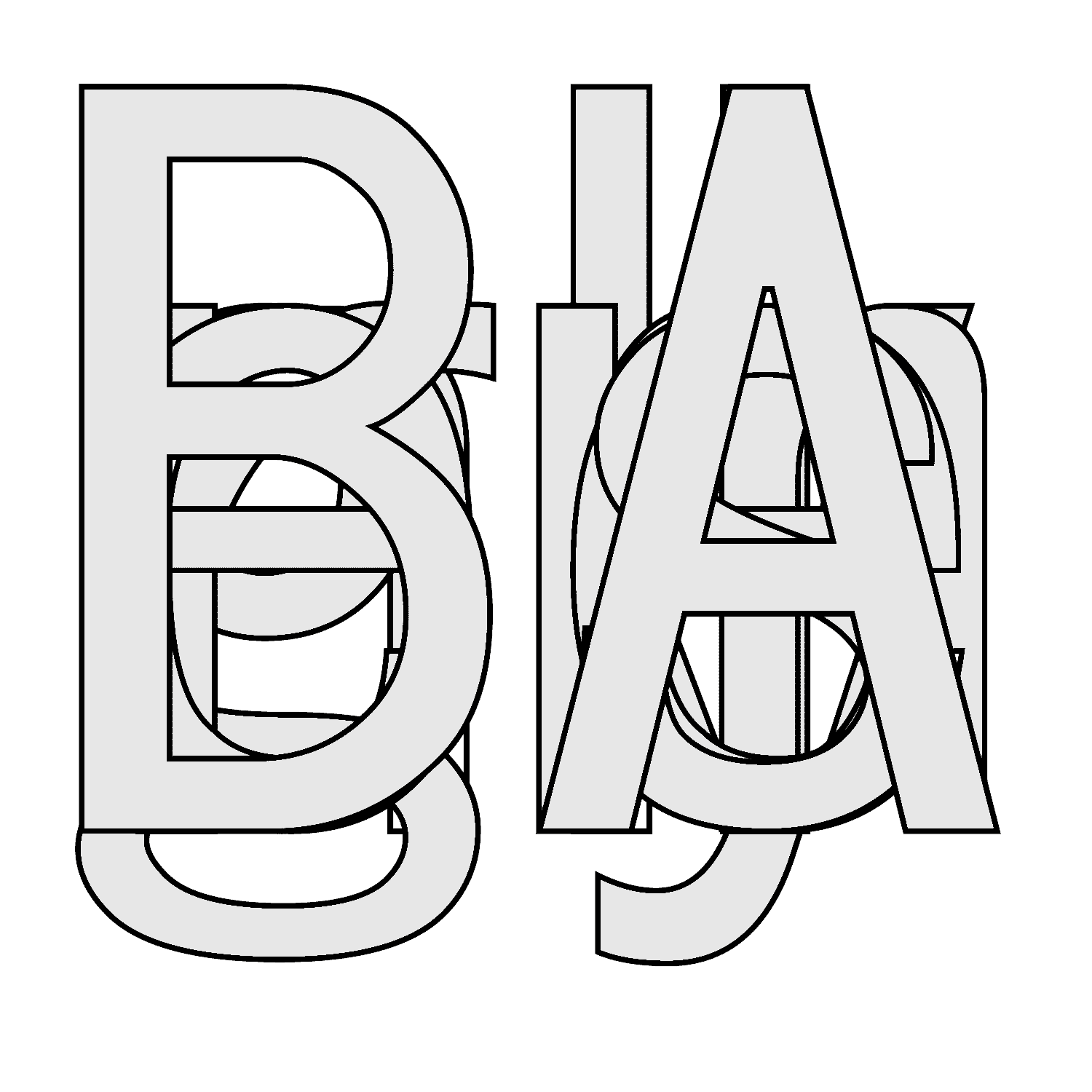across, with, nearby
NO / EN
2025-WEBSITE →

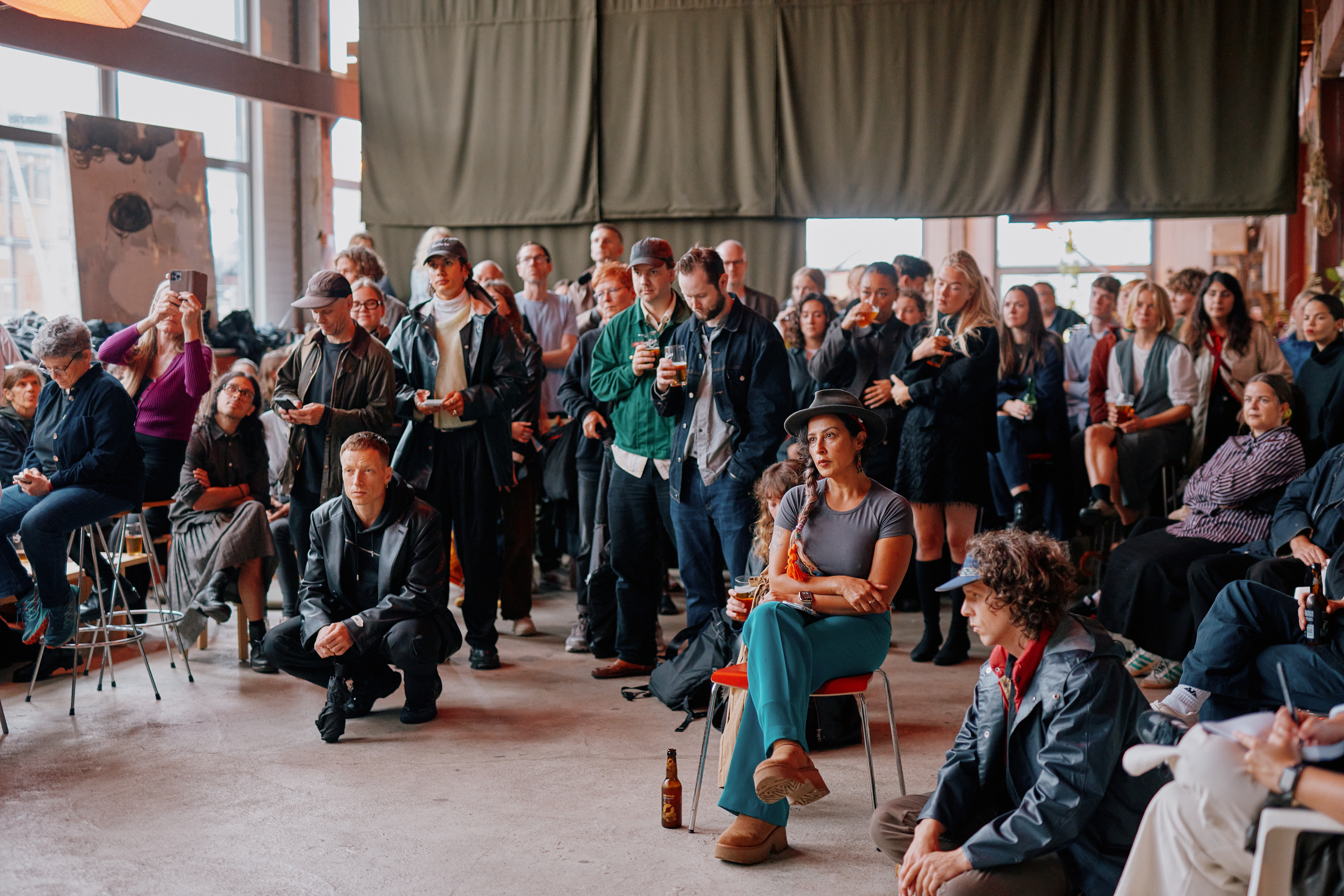




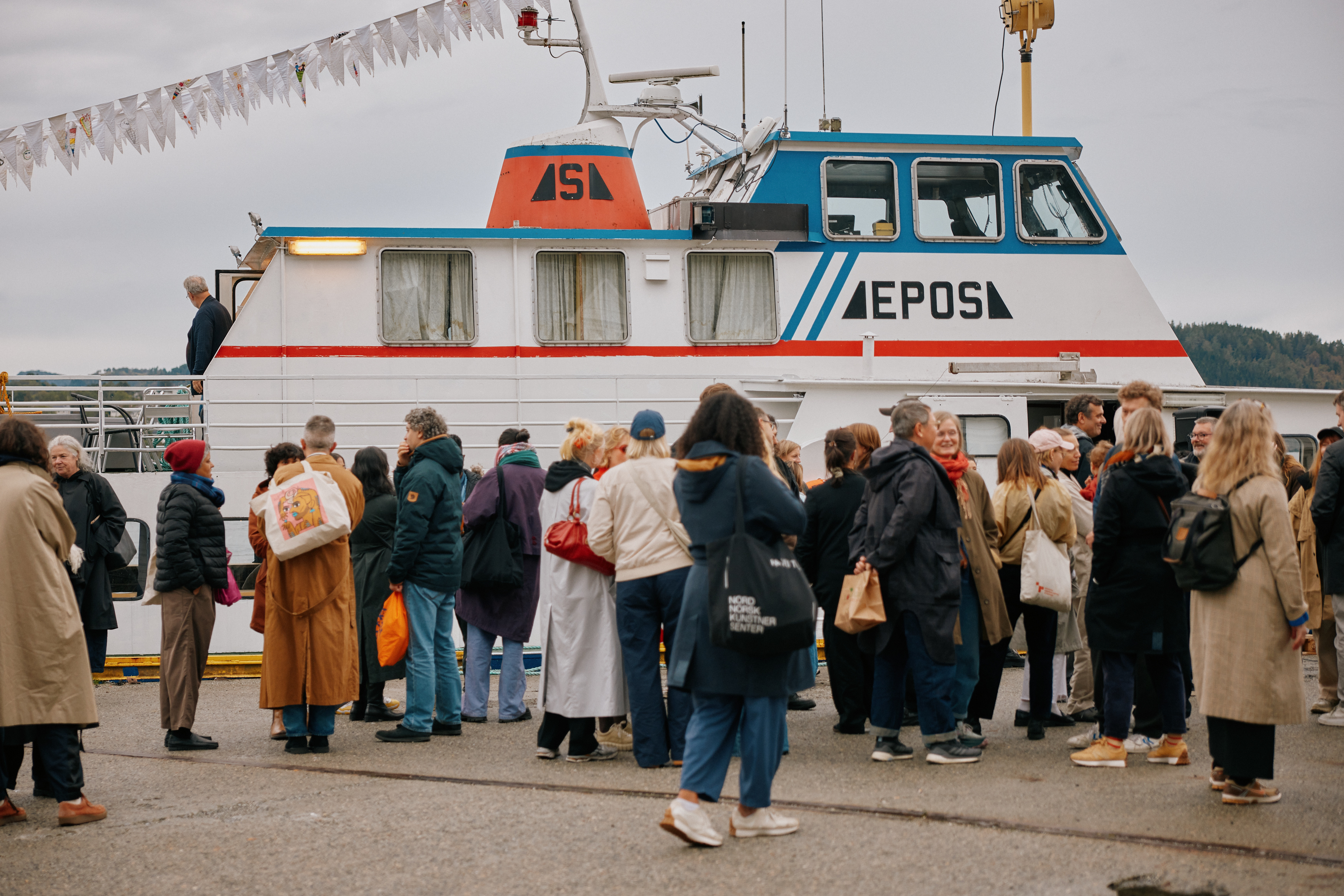
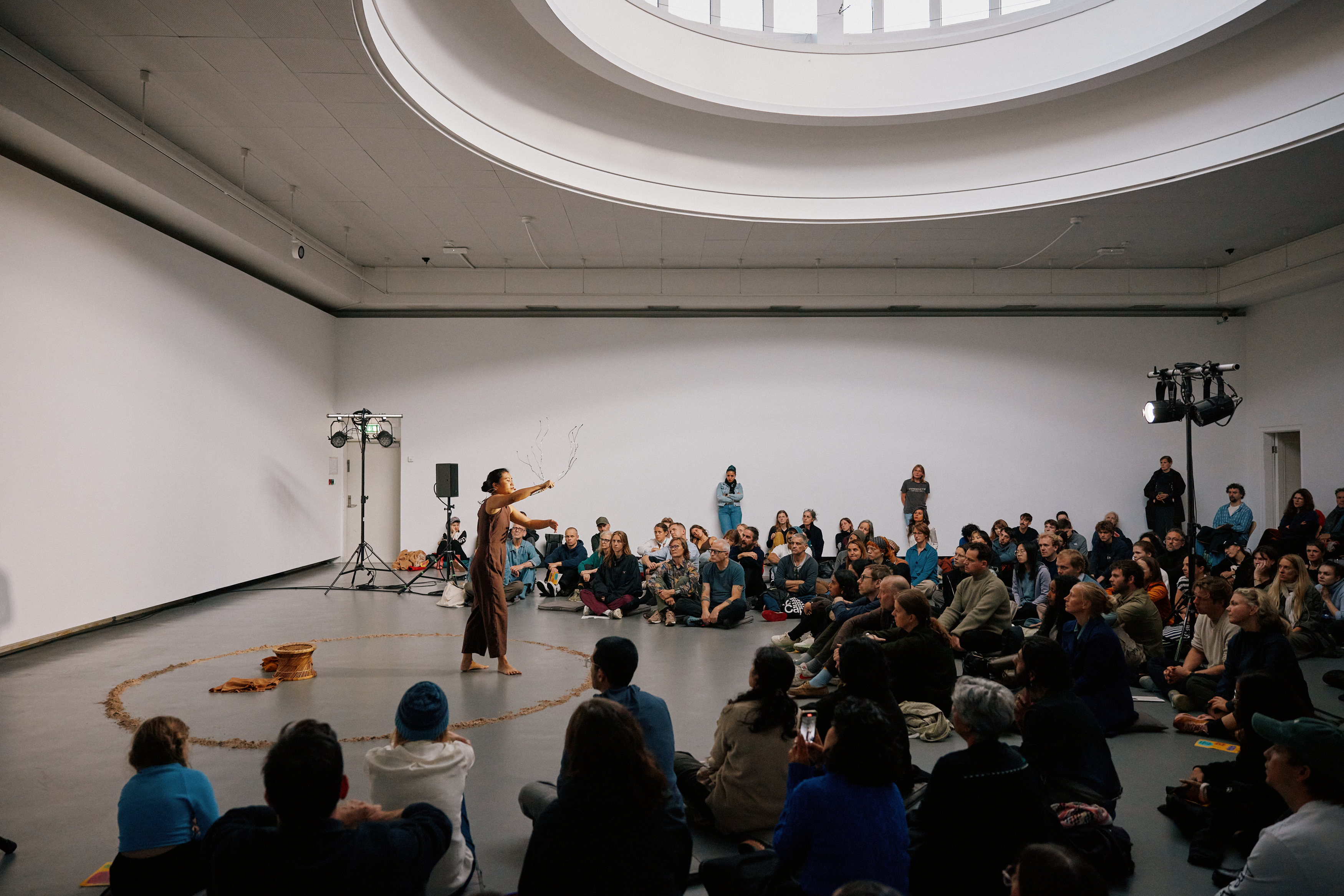
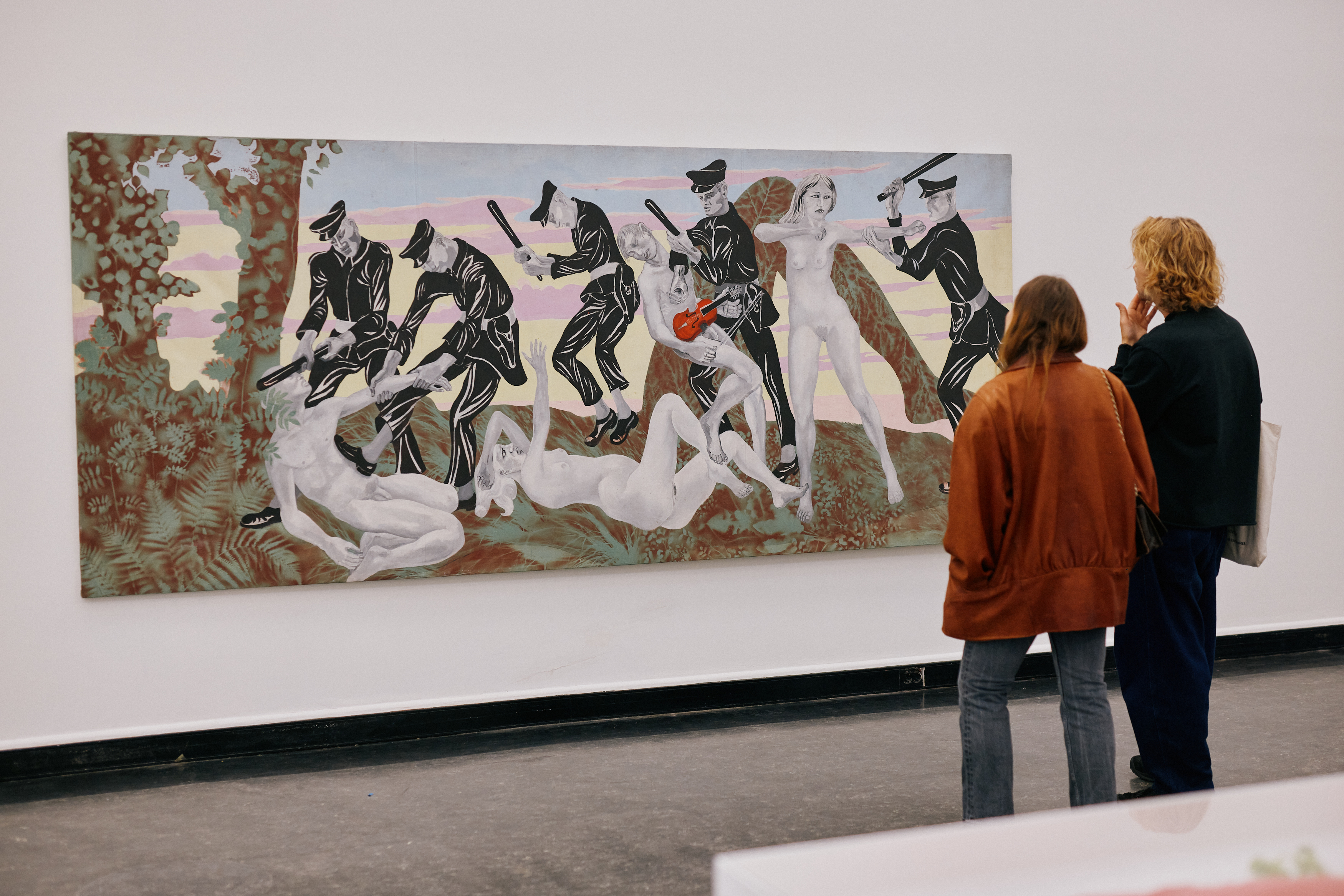
Opening days: 11–14 September 2025
Running period: 11 September–9 November 2025
What does it mean to cultivate a sense of neighbourliness nearby and from afar? In what sense can love act as a public force, capable of countering social, ecological, economic, and political injustices? How can we challenge pedagogy that flattens diverse worlds, cultural differences, forms of knowledge, engagement, and ways of being?
The fifth edition of the Bergen Assembly invites you to participate alongside others in approaching these questions and to share in processes of learning across, with, and nearby. We intend to cultivate a series of collective and intimate responses to the paralysing uncertainties and cruelties inflicted in our time. By embracing curiosity and a spirit of collaboration, guided by new and abandoned insights alike, we seek to forge paths through the abyss into reflective and creative kinds of uncertainty.
Carried in the aforementioned questions is the diversity of practices that interweave in this edition of the Bergen Assembly, convened by Ravi Agarwal, Adania Shibli, and the Bergen School of Architecture (BAS). These inquiries—some of which emerged through encounters in the Cross Course programmes already initiated by the convenors—invite you to join, expand upon, and carry them forward as you engage with the triennial’s upcoming programme. This edition will be experiential: a communal, living, and evolving process of artistic and knowledge formations through practices of sharing rather than showing.
across, with, nearby lays an aspect of its foundation in the idea of mutual care. It brings together visual and audio artists, authors, archivists, activists, architects, and other practitioners that seek relational processes for shared learning. If knowledge can move through lived experiences and reciprocity, it is vital to acknowledge any accompanying uncertainties, intimacies, and fragilities. We therefore propose situations of engagement based on trust and mutuality as a way of co-creating. These unfold in the shape of works that can be viewed and listened to, and which also take the form of invitations to collaborative performances and spaces of hosting, gathering, and neighbouring.
The convenors have sought forms of knowledge that are in motion and in relation to one another—forms which, in their complexity, might recall what the poet and author Aimé Césaire called “poetic knowledge.” This approach foregrounds a kind of learning that resists categorisation or exclusion, and which unfolds over time across places, humans, and more-than-humans. It invites you to allow a space for what is there, though unacknowledged, as well as new shapes of understanding and ways of being, both in Bergen and beyond.
Supported by

Bergen Assembly 2025: Cross Courses













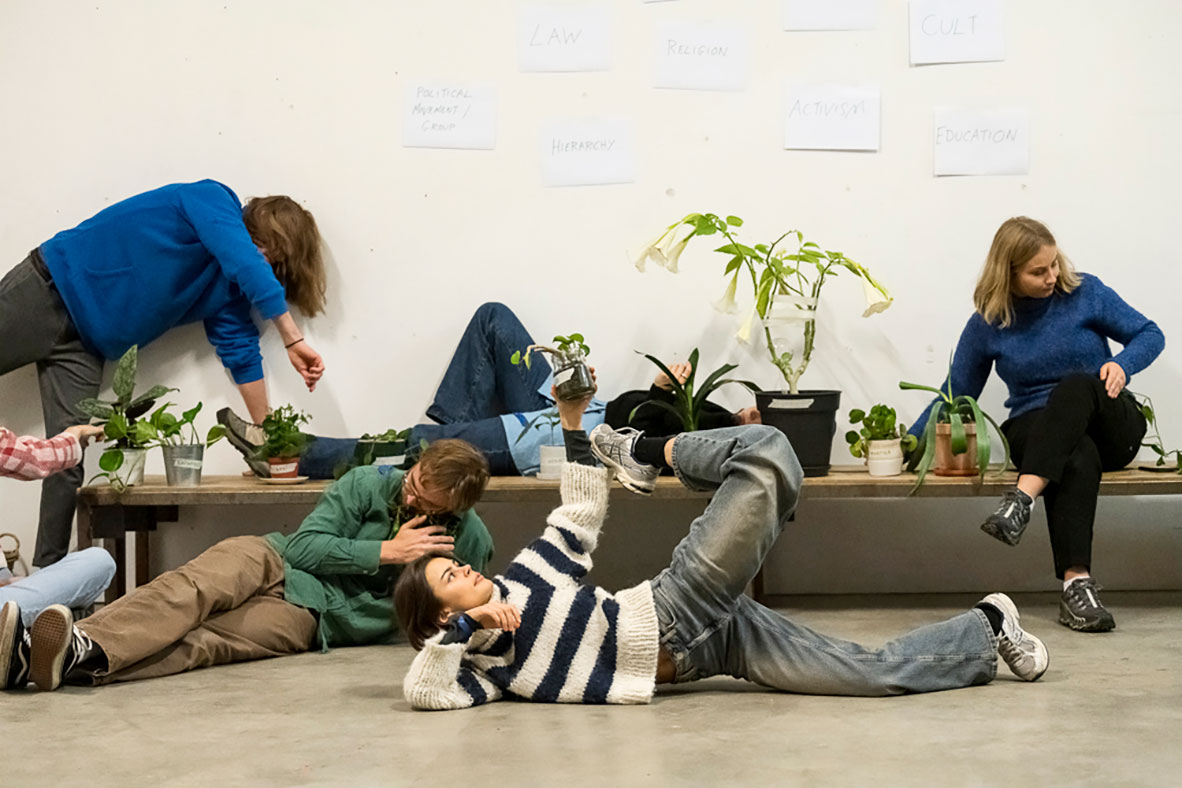
As a starting point for exploring questions central to the upcoming edition of Bergen Assembly, in 2024, the joint convenors drew on an existing format at Bergen School of Architecture - the cross course. These courses were a platform to look into new methodologies, knowledges and forms of being and creating together–intended as spaces for collective exploration and new ways of learning-with, that would reverberate long after these four days.
Each cross-course had both a sharer and a tracer. While the sharer shaped and formed the course, the tracer reflected on the course process from the perspective of their own practice, discovering traces that carried forward in different forms towards Bergen Assembly 2025 and beyond.
Held over five days in February and October 2024, and February 2025, the cross-courses brought together students, artists, and researchers to share ideas, questions and practices on a diverse range of topics: from Sámi architecture or the complexities of urban development explored through comedy, to the ecological significance of houseplants, disrupted radio signals and unearthing archival material.
You can read more about each round of cross courses below, and by following the link for the full program and details of each course.
> Cross Course Program 04.02 - 07.02.25
In the most recent round of cross courses in February 2025, participants explored a range of topics from neighbouring cultures through acts of care and conversation, to reflections on how to proceed after destruction, beyond the idea of reconstruction. They learned about the Sámi practice of leaving no traces, shifts in language across borders, urban planning, made their own paint and immersed themselves in artistic practices reclaiming ruins and leftover materials.
> Cross Course Program 29.10 - 01.11.24
A second round of cross courses took place 29. Oct - 01. Nov. The October courses were offered to a broader audience, who engaged in a range of subjects: turfing and Sámi architecture, unsorted archive material, explored sites in transition, listened to fish, got to know the individual trees in the ancient Havrå forest, explored the potential of discarded hospital garments, uncovered stories hidden in everyday life, and got friendly with house plants.
> Cross Course Program 20.02 - 23.02.24
The first cross courses took place from 20. - 23. Feb, with 10 courses running in parallel alongside broader public lectures. These were open to students and faculty at BAS, as well as to specially invited groups, including students at the Art Academy – Institute for Contemporary Art, Skrivekunstakademiet, and other smaller groups and initiatives in Bergen (such as the African Student Union and the Sámi Association in Bergen).
Ravi Agarwal (Delhi, 1958) is an artist, environmental campaigner, writer and curator. He addresses entangled questions through an interrelation of art, research and activism, focusing on the subject of nature and its futures. His work has been shown at major museums in solo and group exhibitions, and at international biennales. He has co-curated large public art exhibitions, including the Yamuna-Elbe project (Hamburg and Delhi, 2009) and Embrace our Rivers (Chennai, 2018). More recently he curated New Natures, A terrible beauty is born at the Goethe Institute and CSMVS Museum, Mumbai, and Imagined Documents at the Les Rencontres d’ Arles 2022. Agarwal is also the founding director of the environmental NGO Toxics Link and the founder of The Shyama Foundation, which engages with art and ecology practices in India. He has both written and edited books and journals, including The Crisis of Climate Change (Routledge, 2021), and Marg Journal of the Arts – Art and Ecology (Mumbai, April 2020)
Adania Shibli (Palestine, 1974) has written novels, plays, short stories and narrative essays. Her novel Tafsil Thanawi (Minor Detail) was published by Al-Adab in 2017. Its English translation, published by Fitzcarraldo Editions (UK) and New Directions (US), was subsequently nominated for the National Book Award 2020 and the International Booker Prize 2021. She is currently the writer-in-residence at the Literaturhaus Zürich and Stiftung PWG. Alongside her fiction writing, Shibli is engaged in academic research, teaching and lecturing. She received a PhD in 2009 from the University of East London in the field of Cultural Studies. She has collaborated as a curator of artistic projects with institutions such as the A. M. Qattan Foundation in Palestine and Haus der Kulturen der Welt in Germany.
Bergen School of Architecture (BAS) began in 1968 as a nomadic teaching model providing informal seminars, lectures, outdoor workshops and studio courses. This was formalised in 1986, with BAS gaining full rights to award Master’s degrees in 1990. BAS was founded as a pedagogic alternative to architectural education at the time. Its curriculum is grounded in Oskar and Zofia Hansen’s ideas about Open Form. The didactic methods developed at Warsaw Academy of Fine Arts from the 1950s to 1980s was brought to BAS and Bergen by the school’s founder Svein Hatløy. Open Form encourages inclusive processes and ambiguous designs, developing spatial and temporal situations with diverse forms of collaboration and collective action.
Running time:
11 Sep - 9 Nov
Opening Days:
11 Sep - 14 Sep
Convenors:
Ravi Agarwal
Adania Shibli
Bergen School of Architecture
With:
Ken Are Bongo and Joar Nango, Susan Philipsz, Koki Tanaka, Prabhakar Pachpute, and Jana Winderen at Bergen School of Architecture. Vikrant Bhise, Marcus Coates, AgriForum: Acts of Re/Collection (facilitated by FICA, with contributions by Anga Art Collective, Malavika Bhatia, Ankan Dutta, Sanchayan Ghosh, Blaise Joseph, Rashmi Kaleka, Shubham Kumar, Maksud Ali Mondal, Ashis Palei, Bhikari Pradhan, Gopa Roy, Sheshadev Sagria, Niroj Satpathy, Umesh S, and Gyanwant Yadav), Kåre Aleksander Grundvåg, Gram Art Project and Matskogen, Clara Hastrup, Ánddir Ivvár Ivvár / Iver Jåks, Sajan Mani, Gruppe 66, Karen Werner, Singing Wells, og Karan Shrestha, and co-ritus events by Susan Philipsz, Maasai Mbili Artist Collective, Jakkai Siributr, and Tenthaus Art Collective at Bergen Kunsthall. Izz Aljabari, Priya Bains, Olav Bleie, Blocknotes with Christine Otten and Mohamedou Ould Slahi, Tora Sanden Døskeland, Leander Djønne, Shahram Khosravi, Lars Korff Lofthus, Layli Long Soldier, Maaza Mengiste, Christine Elsebet Rahlff, Agnes Ravatn, Philip Rizk, Einar Økland, Gunhild Øyehaug, Elin Már Øyen Vister, and the Hardangerfjord community at the Literature Boat Epos. Nepal Picture Library: Dalit Archive, Feminist Memory Project, PARI Archive (Grindmill Song Project), and Norwegian Queer Archives at Stranges Stiftelse. INTERPRT and Climate Rights at Bergen Public Library and MLAG. Monica Ursina Jäger at Grand Hotel Terminus, Amundsen Bar. Maasai Mbili Artist Collective at Entrée. Floating University at Kristiansholm. Builder’s Hut and Trajectories at ROMMET, USF. Communist Museum of Palestine and Tenthaus Art Collective with Ayreen Anastas, Rana Anani, Rana Batrawi, Munir Fasheh, Rene Gabri, Mandaloun Collective, Mezna Qato, and others in P1 Studio at Bergen Cathedral School ‘Katten’. Lapdiang Artimai Syiem and Monica Ursina Jäger at Nonneseter. Al Borde and Traces at Bergen Assembly Open Office. Jakkai Siributr and Erlend O. Nødtvedt at the Textile Industry Museum. Sarah Kazmi at Norway Fisheries Museum. Hans Petter Blad, Pedro Carmona-Alvarez, Shwan Dier Qaradaki, Ulla Schildt, Kjersti Annesdatter Skomsvold, and others in Vinduet.
Sites: Bergen Kunsthall, Bergen School of Architecture, Kristiansholm, Entrée, Stranges Stiftelse, Nonneseter, Textile Industry Museum, Bergen Public Library, Bergen Cathedral School, MLAG, ROMMET, Amundsen Bar at Grand Hotel Terminus, Bergen Assembly Open Office, and the Literature Boat Epos.
Bergen Assembly 2025 team: Ingrid Haug Erstad
Director
Kirsten Wandschneider
Head of Project
Christina Hannestad
Administrative Coordinator
Tor Steffen Espedal
Project Coordinator
Fergus Tibbs
Project Coordinator
Michael Stumpf
Project Development
Alex Millar
Project Coordinator
Hannah Jacobi
Project Coordinator
Jonatan Wejnold
Opening Days Coordinator
Eirik Hunnes
Events & Bar Manager
Maria Råkil
Communications and Outreach Lead
Tora Karoline Dahl
Digital Content and Exhibition Host Coordinator
Embla Sunde Myrva
Website
Arash Shahali
Communication and International Press
Louisa Elderton
Text and Editiorial Lead
Cross Courses:
Cross courses shared by: Nabil Ahmed, Blenda Elin Josefin Groth Albrektsson, Sander Andersson, Linnea Axelsson, Rana Batrawi, Bloc Notes and prisoners, so so brafield, Chen Hsi-Chao, Marcus Coates, Klubb Diaspora, Emma Esmeralda Domino and Maia Alva Martinsen Garrido, Tomas Espedal, Munir Fasheh, Fem_Arc, Floating University, Tanja Geiss, Sanchayan Gosh, Olle Helin, Sofie Hviid Vinther, Aleksandra Ivashkevich, Nina Katchadourian, Sarah Kazmi, Jan Liesegang, Siddhartha Lokanandi, Majdal Nateel, Jutta Pöstges, Shareef Sarhan & Rana Batrawi, Kasper Svendsen, Trond Hilmar Søbstand, Synnøve Marie Vik and Trond Hilmar Søbstand, Karen Werner, Jana Winderen, Maria Wenye.
And traced by: Marco Bruzzone, Ingvild Burkey, Ocean Space (Bernice Donszelmann & Nancy Couling), Freya Coursey and Fergus Tibbs, Katarina Dorothea Isaksen, Harald Gaski, Saskia Holmkvist, Shahram Khosravi, Vibeke Jensen, Jason Wallis Johnson, Sofya Markova, Ciprian Muresan, Ngartia Mũrũthi, Sina Najafi, Vilde Salhus Røed, David A. Rios, Ananda Serné, Cristian Ștefănescu, Tenthaus, Jessica Warboys, Karen Werner, Larissa Fassler, Luke Drozd, Radha D’Souza.
Cross Course Program 04.02 – 07.02.25
Cross Course Program 29.10 – 01.11.24
Cross Course Program 20.02 – 23.02.24
